[Lawyer Wei Zhida] Twenty years of repeated establishment of sex / milestone in judicial review of other niches
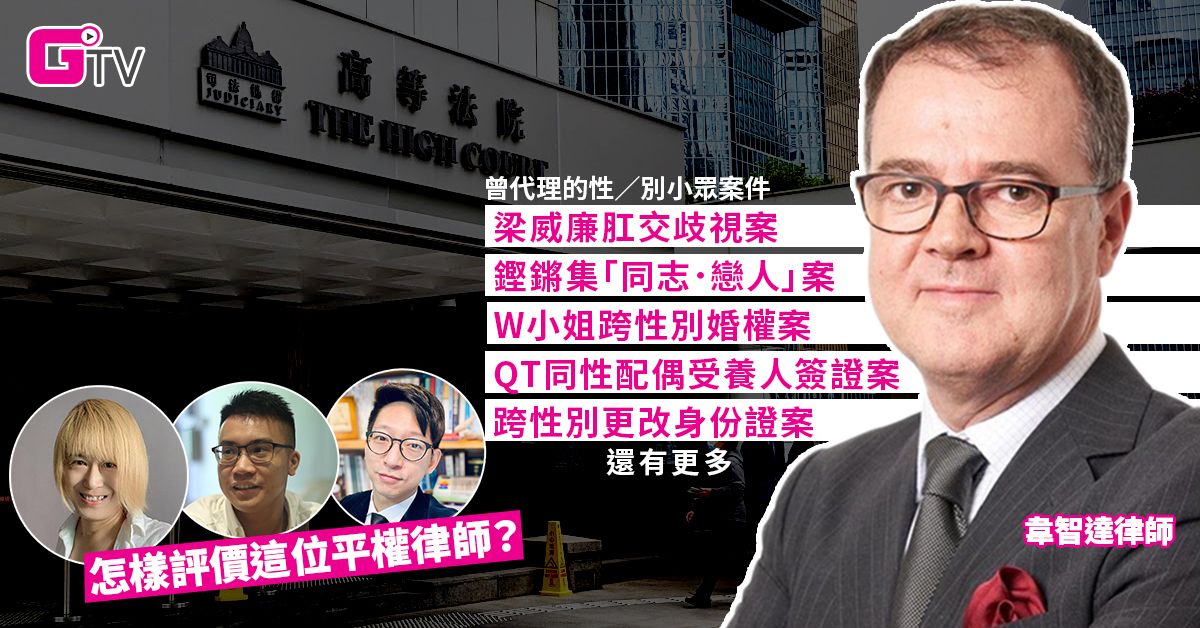
Written by: Louis, Claudia
Text Editor: Cindy
Website Editor: EQ
Over the past 20 years, Vidler & Co. Solicitors has represented a number of high-profile and far-reaching gender/gender affirmative action lawsuits, including Miss W's successful bid for transgender marriage rights, and the first case for same-sex spouse affirmative action. The QT case, etc., have left milestones for Hong Kong's gender/sex minorities to strive for equal legal protection. In June this year, Wei Zhida Law Firm officially closed, and one of the partners, Michael Vidler, also left Hong Kong at the end of April. Several gender/different minorities who had worked with Wei Zhida were interviewed by point G, saying that seeing his past efforts for equal rights, they felt sorry for the law firm's graduation, and also lamented that the local gender/different minorities movement lost a deep cultivator. Years of legal talent.
Looking back at the progress of gender/sex minority equality in Hong Kong, judicial review has always played an important role, especially when the executive and legislature are stagnant, judicial review can directly challenge discriminatory policies against gender/sex minorities. For example, in recent years, there has been considerable progress in equal rights for same-sex spouses. Same-sex spouses can enjoy equal civil service benefits in Hong Kong, the right to live in public housing, the right to handle funeral affairs and the right to inherit inheritance, etc., which are achieved through five judicial reviews one by one. As one of the few law firms in Hong Kong that focuses on human rights and civil rights issues, Wayne Law Firm has extensive experience in handling gender/gender minority affirmative action cases and has won many victories in the past 20 years.
Follow GDotTV Telegram Channel,
Stay up-to-date with the latest news on G-spot TV!
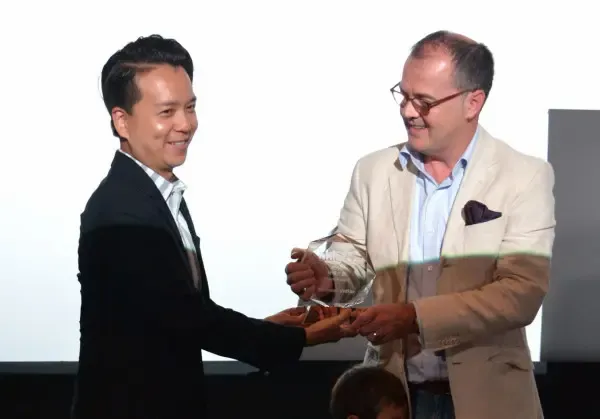
William Liang's case, the first case of gender equality equality, and Wei Zhida's high court have become a classic
In 2005, the case of William Leung, which challenged the male-male anal sex law, was won by the High Court, shaking Hong Kong society, which was still generally conservative and anti-gay at the time. Applicant Billy Leung is dissatisfied with the law prohibiting males under the age of 21 from having same-sex buggery, and offenders can be sentenced to life imprisonment. The judge finally ruled that the criminal law violated the Basic Law and the Human Rights Law, and the legal age of sodomy should be lowered to 16 years old, and pointed out that Hong Kong laws cannot discriminate on the basis of sexual orientation, otherwise it would be unconstitutional.
The William Leung case is the first example of a sexual minority who challenged discriminatory laws and won a lawsuit through judicial review. It's Wei Zhida. After winning the case, he and Billy Leung raised their arms at the main entrance of the High Court, posing a victory gesture, becoming a classic figure in the early years of fighting for gender equality.
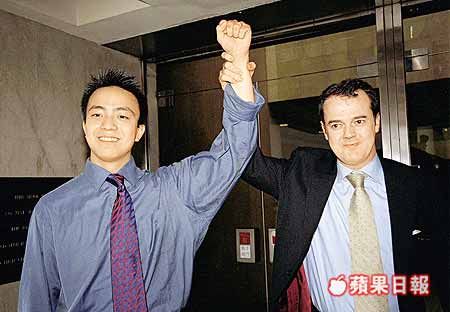
The "Gay Lover" Case Against Censorship Cao: Wei Zhida's lawsuit also emphasizes media strategies
In 2006, RTHK aired an episode of "The Sonorous Episode" titled "Gay Lovers". However, the BA ruled that the program favored homosexuality and was not suitable for broadcasting during family carnival time. It even issued "strong advice" to RTHK. . Cao Wenjie (Xiao Cao), who was interviewed on the program, filed a judicial review, accusing the BA of discriminatory tendencies and undermining freedom of speech and the press. In a later ruling, the Supreme Court judge pointed out that the program only reflected the situation of gays truthfully, and there were no inappropriate circumstances such as nudity.
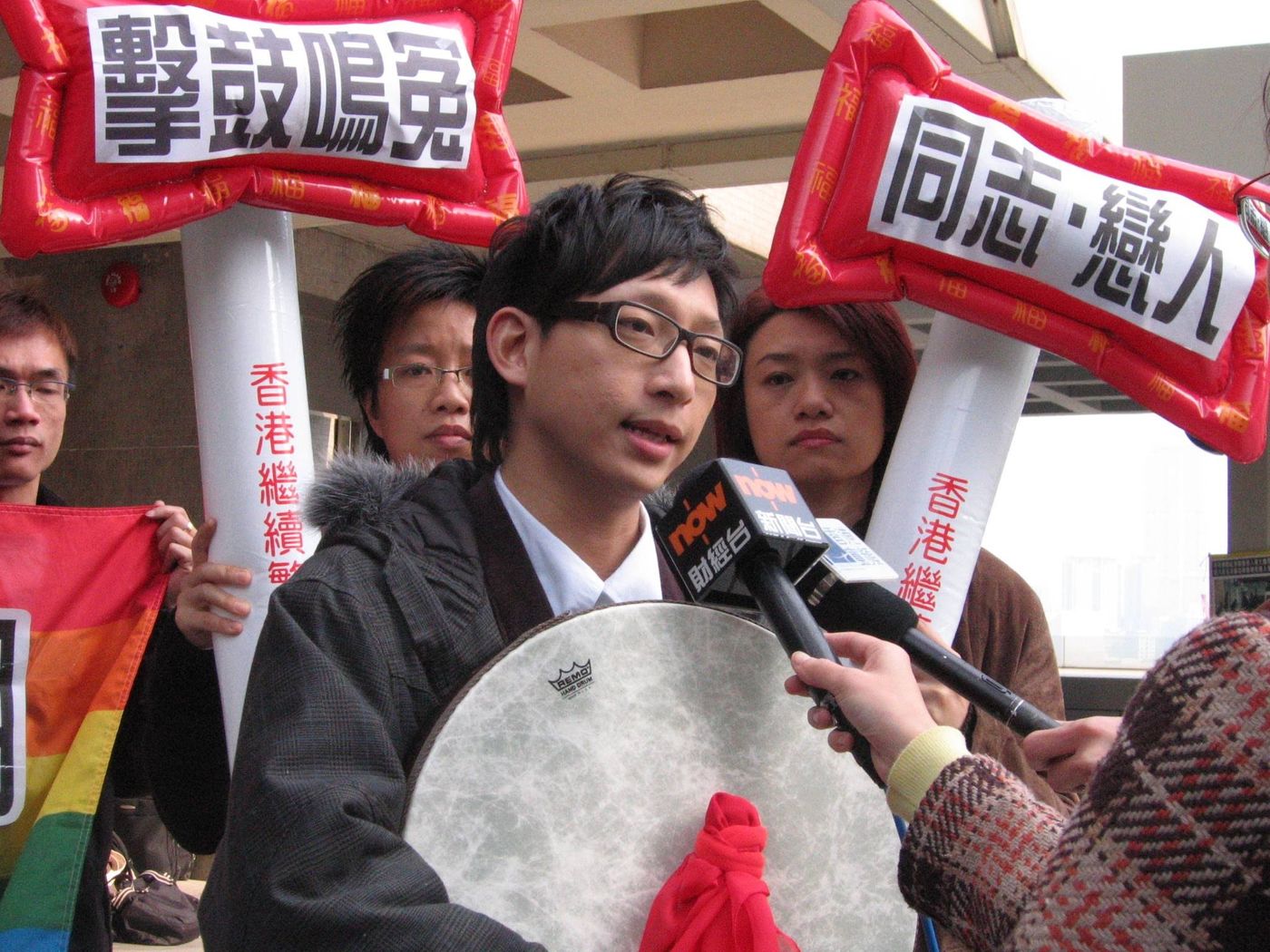
Xiao Cao recalled that in addition to filing the case on behalf of Wei Zhida, media interviews related to the case were also conducted in his law firm. He said that when Wei Zhida took over a case, he would consider both the media presentation and the chances of winning the lawsuit, so he would be very concerned about his response to the interview and how the media reported it in the end. Regarding Wei Zhida's departure from Hong Kong, Xiao Cao believes that he has certain experience and experience in fighting for the rights of the gender/gender minority: "He has his own agenda, and there are not many lawyers who stand out in support of LGBT, and it is not easy to establish any business in Hong Kong." Xiao Cao He said that although he had disagreements with Wei Zhida in some legal views and speeches, he still respected his actions and felt that no matter what, everyone was for the good of the gender/sex minority community in Hong Kong. He was in a hurry to leave and could not say goodbye to everyone. It is also a "portrait of our Hong Kong era". I will wish him well.
An important milestone in the establishment of equal rights in the Miss W case and the QT case
To count the most important affirmative action cases that Wei Zhida has represented, we have to mention the Miss W case for transgender marriage rights , and the QT case for overseas same-sex spouses to come to Hong Kong with dependant visas . The two judicial reviews were both cleared from the Court of First Instance of the High Court and appealed all the way to the Court of Final Appeal. It took several years to finally win the case, laying a favorable case foundation and legal principles for other gender/gender minority cases in the future.
In 2013, the final victory of the Miss W case was a major victory for the transgender community in fighting for equal rights. Wei Zhida, who assisted Miss W, has been actively promoting the development of the case. The final court ruling gives transgender people who have completed gender-affirming surgery the right to marry with their self-identified gender, such as Miss W, who sought to register with her boyfriend in the case. The court ruled that "women" in the "Marriage Ordinance" includes transgender women, and Miss W cannot be deprived of her right to marry because of her inborn chromosomes. It also indicates that the Hong Kong government should make legislation with reference to the British Gender Recognition Act to deal with it comprehensively. Gender recognition issues in all areas. It is a pity that the Hong Kong government has been in the consultation stage for 10 years.
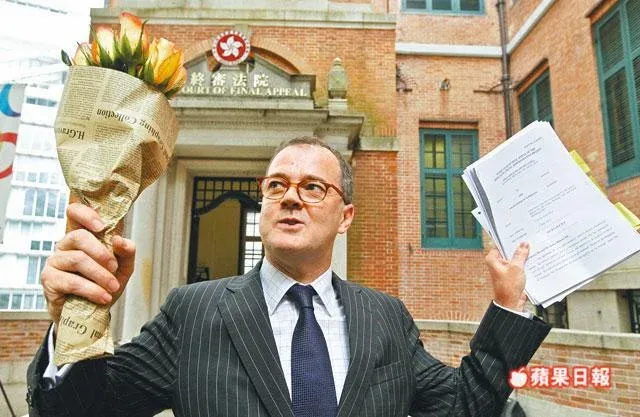
The QT case is also a very important milestone in the same-sex couples affirmative action case, establishing that "unless the government has fair and reasonable grounds and provides strong reasons to prove that same-sex couples should not enjoy certain rights, otherwise the same-sex couples should be treated differently. Discrimination." legal principles. The civil union same-sex partner of British woman QT was dispatched to work in Hong Kong. QT wanted to accompany her as a dependant, but the Immigration Department did not recognize their spousal relationship. After seven years of litigation, the Court of Final Appeal finally ruled that QT won the case in 2018. Although the QT case was only a dispute over visa and entry matters, the legal principle in the ruling that same-sex spouses should not be subject to differential treatment was repeatedly cited in the subsequent case, such as the Liang Zhengang civil servant spouse welfare case, which led to successive successes in subsequent cases.
Helping transgender organizations to intervene in the hearing of Leung Wing-yen: Hao took the initiative to help people fight lawsuits to advance the issue
The founder of the Transgender Resource Center, Joanne Leung, recalled the cooperation with Wei Zhida, thinking that he is a thoughtful lawyer who will think about how to gradually advance the issue, so that the court can recognize the rights of gender/gender minorities in a process. Unlike general practice lawyers, Wichita is more proactive than others in seeking plaintiffs to participate in judicial review.
"Michael would take the initiative to sue people for lawsuits, and most law firms may be passive and unable to reach the community. Michael is very close to the community, and other lawyers can't get a case even if they want to fight. But Michael will work with many Renqing asked other people to help him with the case and come back to fight, I really want to win the commander and the community has changed." She admitted that Wei Zhida is not the only lawyer in Hong Kong who can handle sex/special minority cases. Rarely is such an active lawyer, and his use of the courts to promote affirmative action is similar to the tactics used by Taiwan, the United States, and other places to fight for the rights of gender/gender minorities.
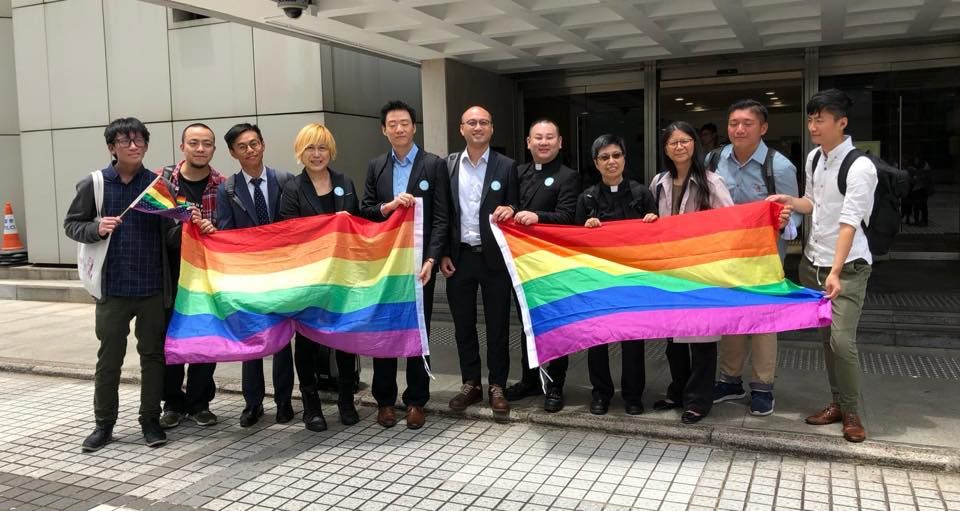
The transgender ID card case is not successful. Henry: Affirmative Action Loses Top Talents
The law firm suddenly announced its closure, and Wei Zhida himself also left Hong Kong. How will the people who stayed go on? Henry Hsieh, chairman of the Hong Kong Transgender Equal Rights Association, filed a judicial review in 2015, challenging the Immigration Department's decision to refuse him to change the gender of his identity card on the grounds that he "has not completed a full set of gender affirmation surgery". Wei Zhida Law Firm is the legal team that followed up his case. Henry and the other applicant, both female-to-male transgender individuals, had undergone breast removal surgery and hormone therapy in the past and lived as men for many years. Although the case was defeated in both the Court of First Instance and the Court of Appeal of the High Court, Henry had long expected to appeal to the final court like the Miss W case. He has now also obtained final leave to appeal.

Henry felt pity and helplessness about the closure of the law firm he had been entrusting: "It's not something I can control, I hope Qudi (the legal team) is all right." During the five years of the judicial review, Henry met from time to time with Witt & Whitney. He praised the team's high ability to work and worthy of the trust of customers. For example, the European Court of Human Rights or the latest cases of gender/gender minority rights in different countries, the team will update and research in real time to increase the chances of winning the lawsuit. Henry believes that Wei Zhida's departure from Hong Kong will undoubtedly make Hong Kong lose a top talent who has been deeply involved in the same movement for many years. It is not only a loss to himself, but also a loss to the transgender and gay community in Hong Kong.
In the event that the original law firm is closed, Henry's case will be continued by newly appointed lawyers. He expects to return to a basic normal life after the final victory. "Wu Xian was tortured and came out of the closet with a wrong document every day, so that he even broke the law when he went to the toilet, couldn't get married, and couldn't rent a house."
Legal aid reform and judicial review of talent leaving Hong Kong still a way out for equal rights?
Wei Zhida was interviewed by the media after his departure from Hong Kong. He explained that the main reason for ending the business in Hong Kong was that he felt the reform of the legal aid system and the narrowing of judicial review space, which made him less interested. Since judicial review involves huge legal costs for the government and the party initiating the lawsuit, the general public cannot afford the cost of hiring a lawyer and filing a lawsuit without the help of legal aid. If the lawsuit is lost, it is more likely that even the government's lawyer fees will be paid accordingly. Under the reform of the legal aid system, lawyers can only receive five judicial review cases each year, while barristers are limited to three, making it more difficult for law firms whose business content focuses on human rights issues and judicial review to survive.
Xiao Cao is also pessimistic about the future of judicial review, and even worries that the review system will one day be abolished: "The IKEA government is more sensitive to people's challenges to laws or government decisions, and public opinion will question the judicial review delay policy, which increases the successful implementation of the policy. Uncertainty. Further down the line, judicial remedies or remedies may be narrowed, and even judicial review may not last long.”
Henry believes that local affirmative action has always relied heavily on the court front, but judicial review is not a panacea. Its scope is narrow, time-consuming, expensive, and brings a lot of psychological pressure to the parties. If the case is not handled properly, it is more likely that the case will affect subsequent applicants for equal rights. However, he said that if actors follow the steps and have the ability to initiate judicial review of certain legislation, it is still a way out that can bring about substantial changes to the gender/gender minority.
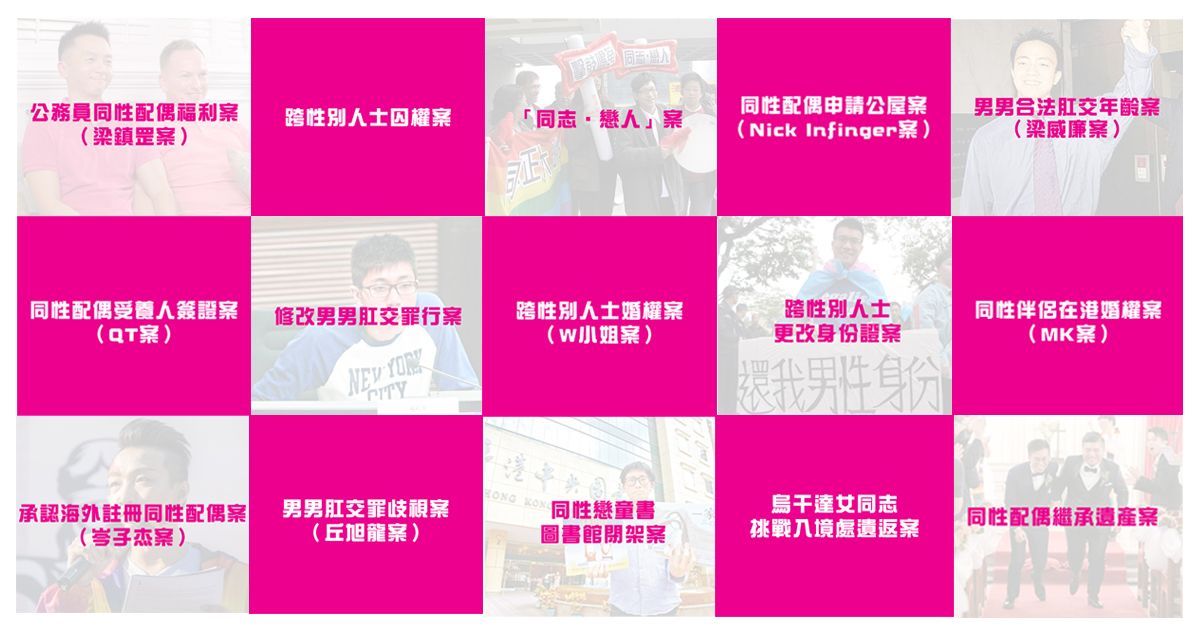
Further reading: Hong Kong gender/gender minority judicial review cases
Original link G-spot TV
Like my work? Don't forget to support and clap, let me know that you are with me on the road of creation. Keep this enthusiasm together!

- Author
- More